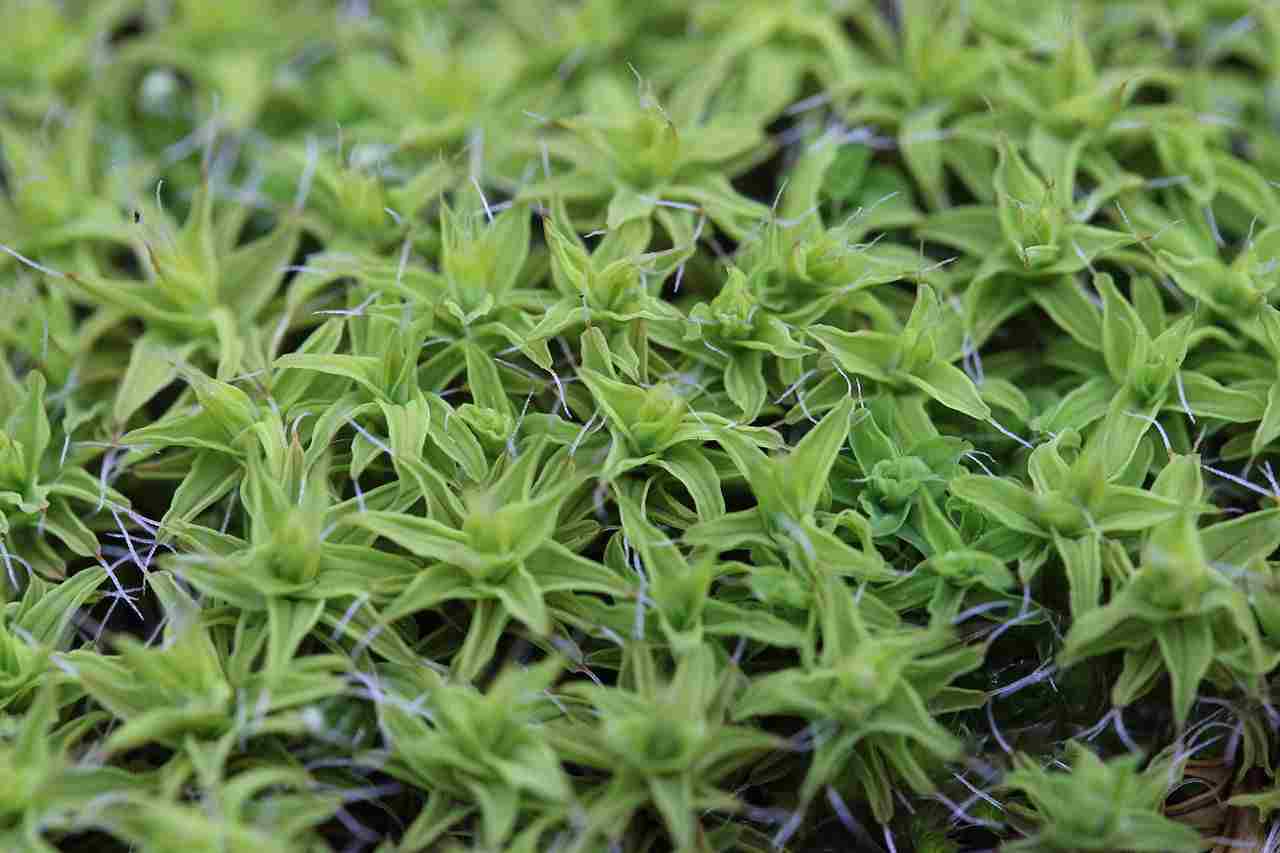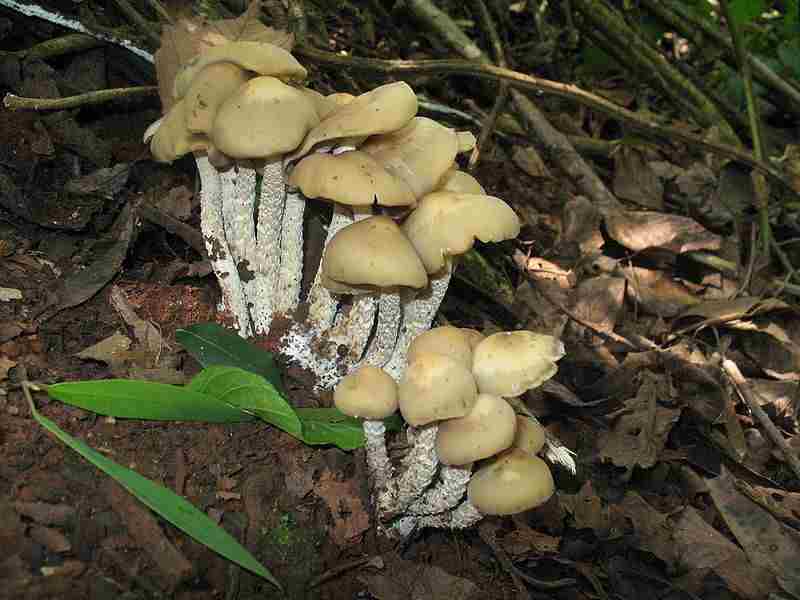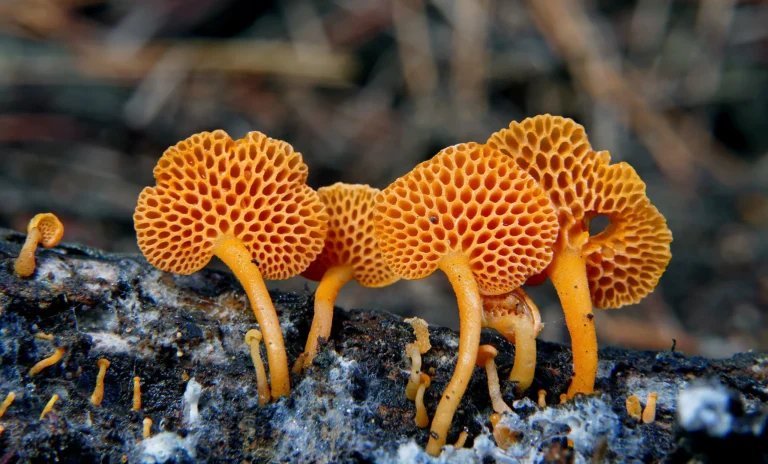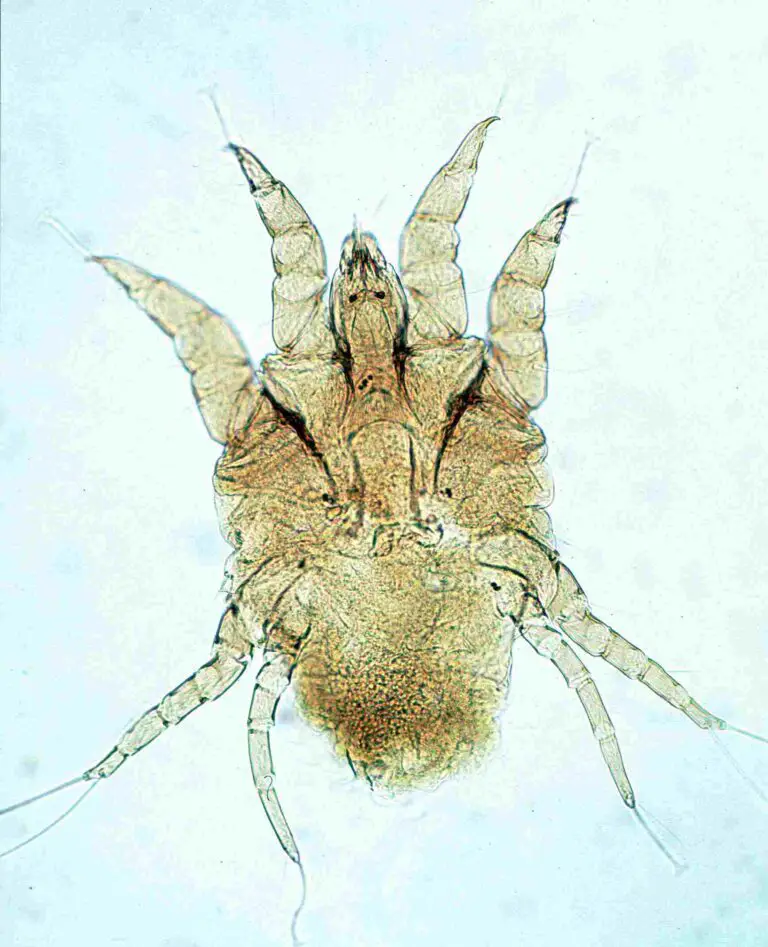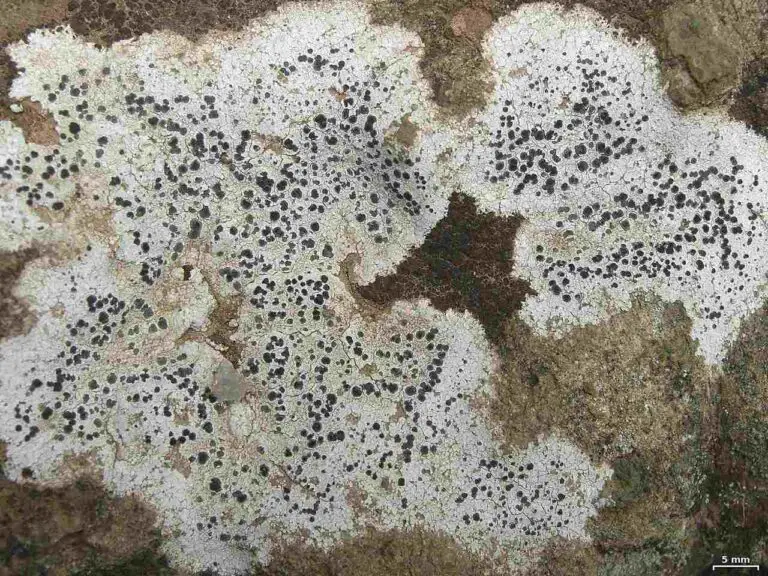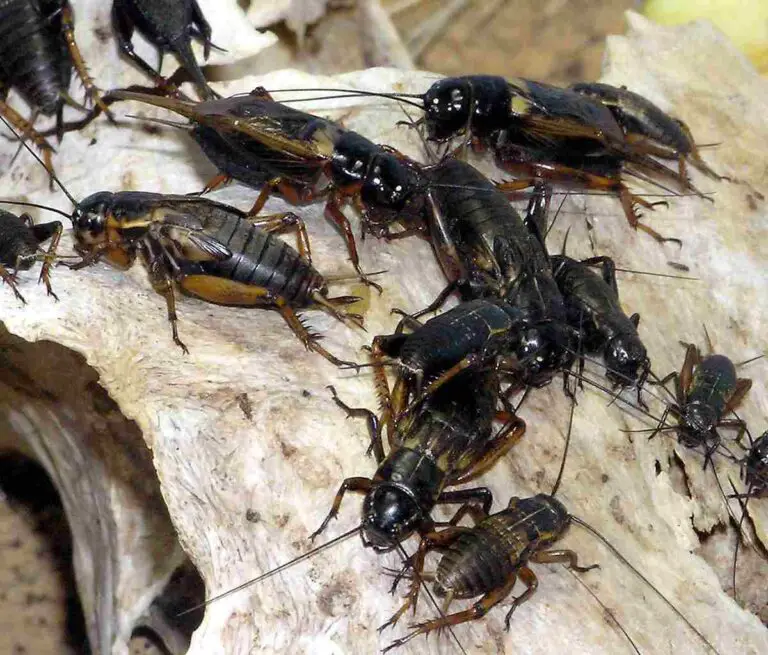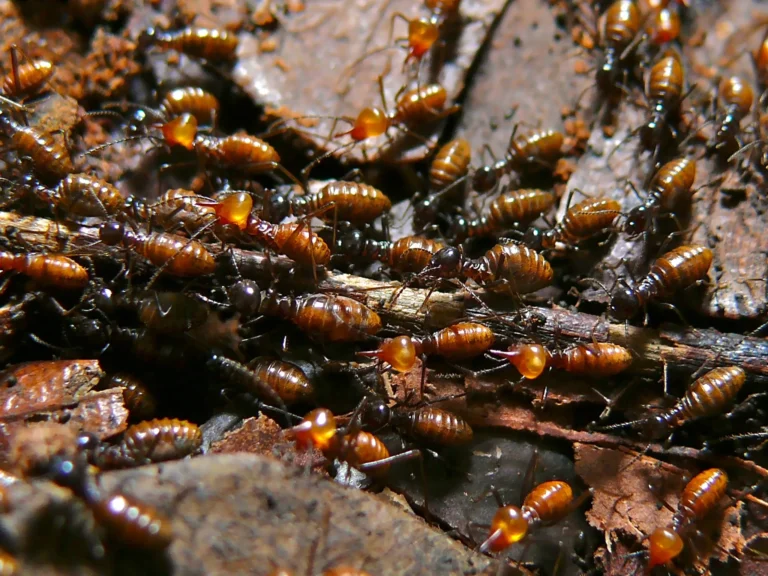Is Mushroom a Decomposer? Trophic Role of Mushrooms Analyzed
Mushrooms are indeed decomposers, playing a crucial role in the process of biodegradation and the breakdown of organic matter. This enables them to derive the necessary nutrients for their own growth and development. As a result, mushrooms often thrive on dead leaves, logs, and other decaying organic materials.
Their saprophytic attributes allow them to break down complex compounds into simpler forms, facilitating nutrient cycling in ecosystems. By decomposing organic matter, mushrooms contribute to the recycling of nutrients and the overall health of the environment. Their active involvement in biodegradation highlights their important trophic role as decomposers.
Why Mushrooms are Decomposers
Reasons why mushrooms are decomposers include lack of autotrophic capabilities, saprophytic attributes, and active role in biodegradation and nutrient cycling. Each of these reasons is discussed briefly;
1). Lack of Autotrophic Capabilities
Mushrooms are decomposers due to their lack of autotrophic capabilities. Unlike producers, mushrooms cannot manufacture their own food through photosynthesis. Instead, they rely on other organisms for their nutrition. This reliance on external sources of organic matter is a key characteristic that distinguishes mushrooms as decomposers.
Without the ability to produce their own food, mushrooms play a vital role in breaking down dead organic material. They obtain nutrients by decomposing and absorbing the organic matter, contributing to the biodegradation process. This process is essential for nutrient cycling in ecosystems, as mushrooms release nutrients back into the environment, making them available for other organisms.
By decomposing organic material, mushrooms also help to recycle nutrients and facilitate the breakdown of complex compounds. Their enzymatic activity breaks down the organic matter into simpler forms, making it accessible to other decomposers and contributing to the overall nutrient cycling in the ecosystem.
2). Saprophytic Attributes
Mushrooms exhibit saprophytic attributes, which is one of the reasons why they are classified as decomposers. Saprophytic fungi, including mushrooms, release enzymes that aid in the breakdown of dead organic matter. These enzymes break down complex compounds into simpler forms, making them accessible to other decomposers in the ecosystem.
The ability of mushrooms to release enzymes for the breakdown of organic material is crucial for nutrient cycling. As they decompose and absorb the organic matter, mushrooms release nutrients back into the environment. This process not only contributes to the biodegradation of dead material but also ensures that essential nutrients are recycled and made available for other organisms.
By playing an active role in the breakdown of organic matter, mushrooms facilitate the overall process of decomposition. Their saprophytic attributes make them efficient decomposers, contributing to the cycling of nutrients and the maintenance of ecosystem balance.
3). Active Role in Biodegradation and Nutrient Cycling
Mushrooms play an active role in biodegradation and nutrient cycling, which further solidifies their classification as decomposers. Through their saprophytic attributes, mushrooms release enzymes that break down complex organic matter into simpler forms. This process not only aids in the decomposition of dead material but also makes nutrients more accessible to other decomposers in the ecosystem.
By decomposing and absorbing organic matter, mushrooms release essential nutrients back into the environment. This nutrient cycling is crucial for the overall functioning of ecosystems, as it ensures that valuable resources are recycled and made available to other organisms.
The active role of mushrooms in biodegradation and nutrient cycling contributes to the maintenance of ecosystem balance. They efficiently break down dead material, releasing nutrients that support the growth and development of other organisms. This process highlights the important ecological function of mushrooms as decomposers, playing a vital role in the natural recycling of organic matter and the sustenance of diverse ecosystems.
Is Mushroom a Producer?
No, mushrooms are not producers but decomposers. Unlike producers, mushrooms do not have autotrophic capabilities. Instead, they rely on organic substrates as their sole source of nutrition, making them saprophytic organisms. This distinction is important because producers, such as plants, are able to synthesize their own food through photosynthesis.
Mushrooms, on the other hand, play a vital role in the decomposition process by breaking down complex organic matter into simpler forms. This process releases essential nutrients back into the environment, contributing to nutrient cycling and the overall balance of ecosystems.
Why Mushrooms are Not Producers
1). Genealogical Difference
Mushrooms, belonging to the fungi group of class Basidiomycetes, exhibit a significant genealogical difference from producers. Unlike autotrophic organisms, mushrooms lack the ability to produce their own food through photosynthesis. This fundamental distinction is a key reason why mushrooms are not classified as producers.
Producers, such as plants, possess specialized structures like roots, leaves, and chlorophyll that enable them to convert sunlight into energy. In contrast, mushrooms rely on organic substrates as their sole source of nutrition. They obtain nutrients by breaking down complex organic matter, such as dead plants and animals, through the process of decomposition.
This genealogical difference between mushrooms and producers highlights the contrasting trophic roles they play in ecosystems. While producers generate their own energy, mushrooms actively participate in biodegradation and nutrient cycling. Their role as decomposers is crucial for breaking down organic matter and recycling nutrients back into the environment.
2). Lack of Physiological Similarity to Producers
Mushrooms lack the physiological characteristics that are typically associated with producers, such as roots, leaves, and chlorophyll. These features enable producers, like plants, to carry out photosynthesis and produce their own food. In contrast, mushrooms rely on organic substrates as their sole source of nutrition, making them distinct from producers in terms of their physiological makeup.
The absence of roots and leaves in mushrooms means that they do not have specialized structures for absorbing sunlight or converting it into energy. Instead, mushrooms obtain nutrients by breaking down complex organic matter through decomposition. This fundamental difference in physiological similarity further supports the classification of mushrooms as decomposers rather than producers.
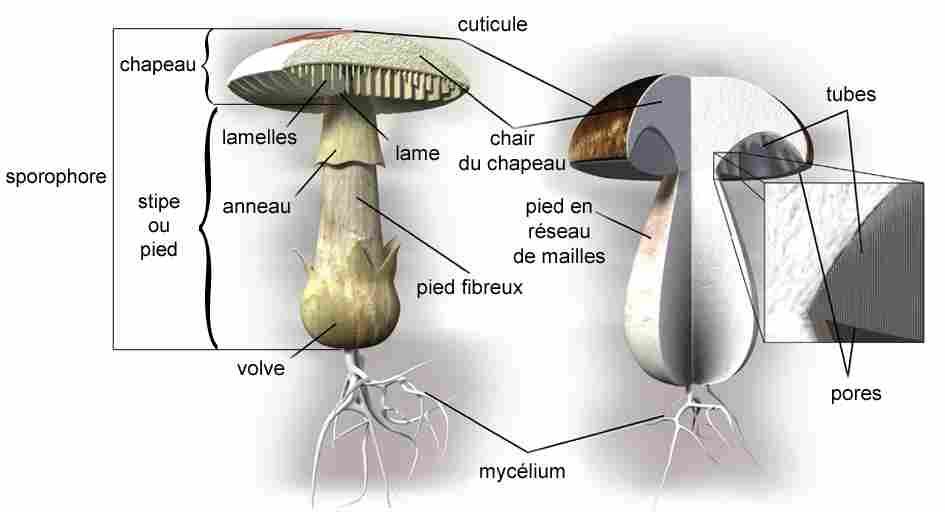
3). Reliance on Organic Substrate as Sole Nutrition-Source
Mushrooms are not considered producers because they rely solely on organic substrates as their source of nutrition. Unlike producers, such as plants, mushrooms lack the ability to carry out photosynthesis and produce their own food. Instead, they depend on the decomposition of complex organic matter to obtain the nutrients they need for growth and development.
The reliance on organic substrates is a key factor that sets mushrooms apart from producers. While producers can harness sunlight and convert it into energy through photosynthesis, mushrooms do not possess the necessary physiological structures, such as roots and leaves, to perform this process. Instead, they break down organic matter, such as dead plants and animal remains, using enzymes and mycelium, their underground network of thread-like structures.
This reliance on organic substrates as their sole nutrition source is a defining characteristic of mushrooms and reinforces their classification as decomposers rather than producers.
Are Mushrooms Decomposers or Producers?
Mushrooms are unequivocally decomposers, not producers. They play a vital role in the decomposition process by breaking down complex organic matter and recycling nutrients back into the ecosystem. Unlike producers, mushrooms lack the ability to carry out photosynthesis and produce their own food. Instead, they rely on the decomposition of dead plants, animal remains, and other organic substrates as their sole source of nutrition.
The absence of autotrophic capabilities, such as photosynthesis, is a key factor that distinguishes mushrooms from producers. While producers can convert sunlight into energy, mushrooms rely on enzymes and mycelium to break down organic matter and absorb the released nutrients. This reliance on organic substrates as their sole nutrition source reinforces their classification as decomposers.
Is a Mushroom a Producer or Consumer?
A mushroom is neither a producer nor a consumer, but rather a decomposer. While it may sometimes be referred to as a consumer due to its heterotrophic nature, it is more accurately described as a decomposer. In fact, mushrooms are often called saprophytic consumers because they obtain their nutrition from dead organic matter. However, their role as decomposers is more significant.
Mushrooms play a crucial role in the ecosystem by breaking down complex organic matter and facilitating the process of decomposition. They release enzymes and mycelium that break down dead plants, animal remains, and other organic substrates, releasing nutrients back into the environment. This process is essential for nutrient cycling and maintaining the balance of ecosystems.
Unlike producers, mushrooms lack the ability to carry out photosynthesis and produce their own food. Instead, they rely on the decomposition of organic matter as their sole source of nutrition. This reliance on organic substrates reinforces their classification as decomposers rather than producers or consumers.
Is Mushroom a Producer, Consumer, or Decomposer?
A mushroom is neither a producer nor a consumer, but rather a decomposer. While it may sometimes be referred to as a consumer due to its heterotrophic nature, it is more accurately described as a decomposer. In fact, mushrooms are often called saprophytic consumers because they obtain their nutrition from dead organic matter. However, their role as decomposers is more significant.
Mushrooms play a crucial role in the ecosystem by breaking down complex organic matter and facilitating the process of decomposition. They release enzymes and mycelium that break down dead plants, animal remains, and other organic substrates, releasing nutrients back into the environment. This process is essential for nutrient cycling and maintaining the balance of ecosystems.
Unlike producers, mushrooms lack the ability to carry out photosynthesis and produce their own food. Instead, they rely on the decomposition of organic matter as their sole source of nutrition. This reliance on organic substrates reinforces their classification as decomposers rather than producers or consumers.
Mushrooms are not producers because they do not possess the autotrophic capabilities required for photosynthesis. They cannot convert sunlight into energy and synthesize their own food like plants do. Additionally, mushrooms do not have the physiological similarity to producers, such as the presence of chlorophyll or specialized structures for photosynthesis.
On the other hand, mushrooms are not consumers because they do not actively hunt or feed on other organisms. While they do obtain nutrients from dead organic matter, they do not actively consume or prey upon living organisms. Instead, they break down and decompose organic material, playing a vital role in the recycling of nutrients in the ecosystem.
What do Mushrooms Decompose?
Mushrooms have the remarkable ability to decompose complex organic compounds found in plant and animal remains. They target substances like cellulose and proteins, which can be present in the form of shed leaves, seeds, fruits, bark, wood, and animal tissues. Through their enzymatic activity, mushrooms break down these complex compounds and convert them into simpler products.
During the decomposition process, mushrooms release byproducts that contribute to the carbon cycle and other biogeochemical cycles. These byproducts include carbon dioxide, water, and various nutrients that are essential for the growth of other organisms in the ecosystem. By breaking down organic matter, mushrooms play a vital role in nutrient cycling and the overall health of the environment.
The decomposition process facilitated by mushrooms is crucial for the breakdown of dead organic material and the release of nutrients back into the soil. This allows for the recycling of essential elements and the maintenance of a balanced ecosystem. Without mushrooms and their decomposing abilities, organic matter would accumulate, and the nutrient cycle would be disrupted.
How do Mushrooms Facilitate Decomposition?
Mushrooms facilitate decomposition through their enzymatic activity, releasing enzymes like “cellulase” and “protease” that help break down organic substrates. These enzymes play a crucial role in breaking down complex compounds, such as cellulose and proteins, into simpler products that can be easily absorbed by the mushroom.
To achieve this, mushrooms must grow in the organic substrate they are decomposing. They use structures called “mycelium” to penetrate and spread throughout the substrate, maximizing their surface area for enzymatic action. The mycelium secretes enzymes that break down the organic matter, allowing the mushroom to absorb the resulting nutrients.
The enzymatic activity of mushrooms is essential for the decomposition process. By breaking down complex organic compounds, mushrooms contribute to the release of carbon dioxide, water, and various nutrients into the environment. These byproducts are vital for the growth and development of other organisms in the ecosystem.
In addition to their enzymatic activity, mushrooms also play a role in the physical breakdown of organic matter. As the mycelium grows and expands, it physically breaks apart the substrate, increasing its surface area and facilitating further decomposition.
Are All Mushrooms Decomposers?
Yes, all mushrooms are decomposers because they belong to the group of saprophytic fungi. Saprophytic fungi, including various types and species of mushrooms, obtain their nutrition by decomposing dead organic matter. However, while all mushrooms share the common trait of being decomposers, they may differ in certain characteristics.
Different mushrooms may have varying rates of decomposition depending on factors such as their size, age, and environmental conditions. Some mushrooms are more efficient decomposers than others, breaking down organic matter at a faster rate. Additionally, the specific types of organic substrates that mushrooms decompose can also vary. Some mushrooms may specialize in decomposing wood, while others may prefer leaf litter or animal remains.
Furthermore, mushrooms may have different decomposition strategies. Some mushrooms decompose organic matter through enzymatic activity, releasing enzymes that break down complex compounds into simpler forms. Others may rely on physical breakdown, using their mycelium to physically break apart the organic substrate.
Conclusion
* In conclusion, this article has explored the trophic role of mushrooms and whether they are decomposers or producers.
* We began by discussing why mushrooms are considered decomposers. We highlighted three main reasons for this classification. Firstly, mushrooms lack autotrophic capabilities, meaning they cannot produce their own food through photosynthesis like plants.
Instead, they rely on external sources of organic matter for nutrition. Secondly, mushrooms possess saprophytic attributes, which enable them to break down dead organic material and absorb nutrients from it. Lastly, mushrooms play an active role in biodegradation and nutrient cycling, contributing to the decomposition process in ecosystems.
* However, it is important to note that mushrooms are not producers. Unlike plants, which can synthesize their own food using sunlight, mushrooms do not have the genealogical and physiological characteristics of producers. They cannot convert sunlight into energy through photosynthesis and are reliant on organic substrates as their sole nutrition source.
* To answer the question of whether mushrooms are decomposers or producers, we must acknowledge that they are indeed decomposers. While they do not fit the criteria of producers, mushrooms play a vital role in breaking down organic matter and recycling nutrients back into the environment. They contribute to the decomposition process, facilitating the breakdown of complex compounds into simpler forms.
* Another aspect we explored is whether mushrooms can be classified as consumers. While mushrooms do consume organic matter, they do not fit the traditional definition of consumers. Consumers typically ingest and digest their food internally, whereas mushrooms absorb nutrients externally through their mycelium. Therefore, mushrooms cannot be solely categorized as consumers.
* In summary, mushrooms are decomposers that actively participate in the biodegradation and nutrient cycling processes. They break down dead organic matter, releasing enzymes or physically breaking apart the substrate. While they are not producers or consumers in the traditional sense, mushrooms play a crucial role in maintaining ecosystem balance and recycling nutrients.
* Mushrooms are an integral part of the natural world, functioning as decomposers and contributing to the overall health and sustainability of ecosystems. Their ability to break down organic matter and recycle nutrients is essential for the functioning of ecosystems. Understanding the trophic role of mushrooms helps us appreciate their importance and highlights the interconnectedness of all organisms in nature.
FAQs
1. What Does a Mushroom Break Down?
A mushroom has the ability to break down a variety of organic substrates, including fecal matter, plant remains, and animal remains. This ability to decompose organic material is one of the key characteristics that define mushrooms as decomposers.
Mushrooms play a vital role in the process of decomposition by breaking down complex organic compounds into simpler forms. They do this through the secretion of enzymes that break down the organic matter into smaller molecules that can be absorbed and utilized by the mushroom itself.
The decomposition process carried out by mushrooms is essential for nutrient cycling in ecosystems. By breaking down organic material, mushrooms release nutrients back into the soil, making them available for other organisms to use. This helps to maintain the balance of nutrients in the environment and supports the growth of plants and other organisms.
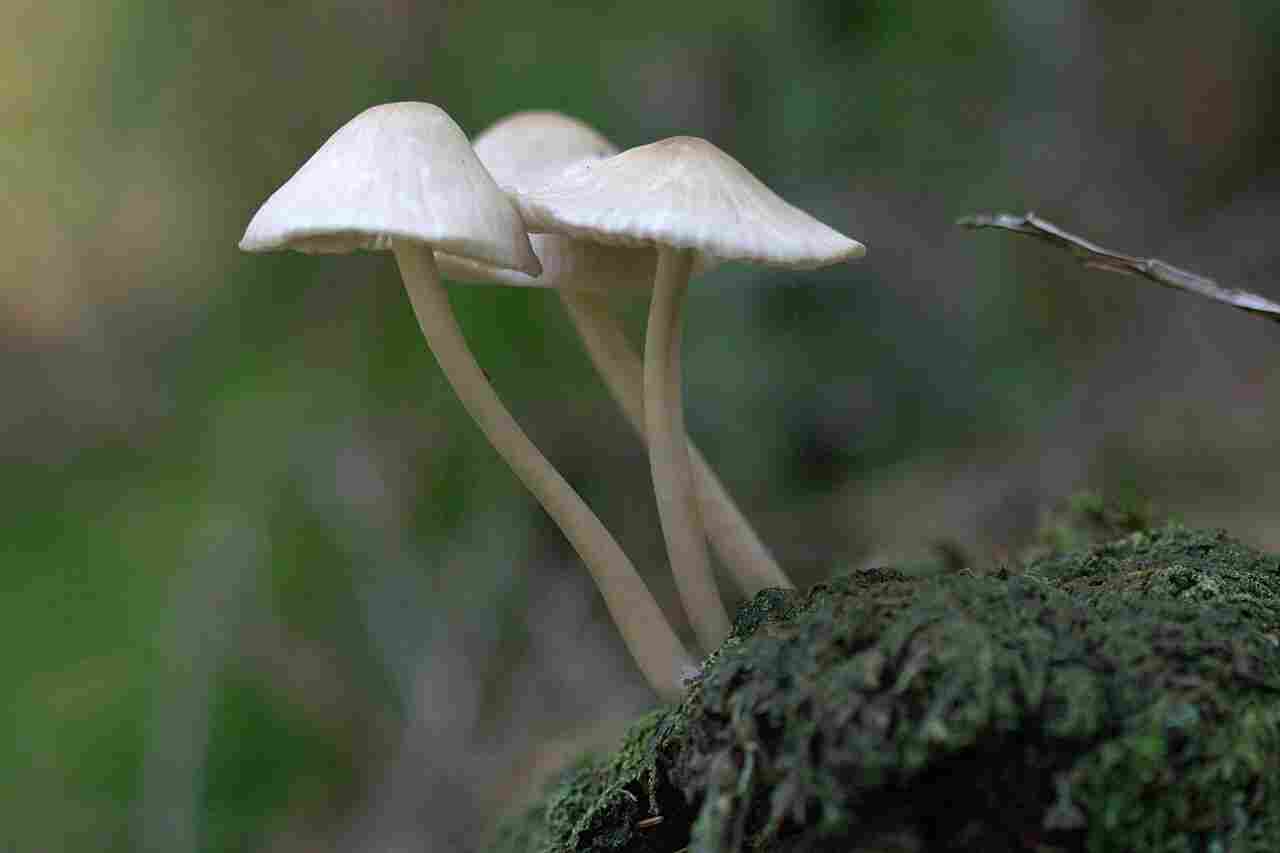
2. Why Can Fungi Act as a Decomposer?
Fungi can act as decomposers because they possess saprophytic attributes and have the ability to secrete enzymes that facilitate the breakdown of organic matter.
Saprophytic fungi obtain their nutrition by feeding on dead or decaying organic material. They play a crucial role in the decomposition process by breaking down complex organic compounds into simpler forms. This is achieved through the secretion of enzymes that catalyze the breakdown of organic matter into smaller molecules.
The enzymes released by fungi are highly efficient in breaking down various organic substrates, including plant remains, animal remains, and fecal matter. By decomposing these materials, fungi contribute to the recycling of nutrients in ecosystems. The released nutrients are then made available for other organisms to utilize, supporting the growth of plants and maintaining the overall balance of nutrients in the environment.
3. How do Mushrooms Break Down Food?
Mushrooms break down food through enzymatic activity. Enzymes are specialized proteins that catalyze chemical reactions, and mushrooms produce a variety of enzymes that aid in the decomposition process. When a mushroom comes into contact with organic matter, it secretes enzymes onto the substrate. These enzymes break down complex organic compounds into simpler molecules that the mushroom can absorb and utilize as nutrients.
One of the key enzymes produced by mushrooms is cellulase, which breaks down cellulose, a major component of plant cell walls. Additionally, mushrooms produce enzymes like lignin peroxidase and manganese peroxidase, which help break down lignin, a complex polymer found in wood and other plant materials.
4. What Mushroom is the Best Decomposer?
The best decomposer mushrooms are: the oyster mushroom (Pleurotus ostreatus) and the shiitake mushroom (Lentinula edodes).
The oyster mushroom is known for its ability to break down a wide range of organic materials, including plant debris, wood, and even petroleum products. Its efficient enzymatic activity and adaptability make it a valuable decomposer in various ecosystems.
On the other hand, the shiitake mushroom is highly efficient in breaking down lignin, a complex polymer found in wood. Its ability to degrade lignin makes it an important decomposer in forest ecosystems.
Both the oyster and shiitake mushrooms demonstrate exceptional decomposition capabilities.
5. Why Mushrooms are Called Detritivores?
Mushrooms are called detritivores mainly because of their role in the decomposition process. They play a crucial part in breaking down organic matter, such as dead plants and animals, into simpler compounds. This process is essential for nutrient recycling in ecosystems.
The classification of mushrooms as detritivores is not without controversy. In the past, mushrooms were often mistakenly classified as plants due to their macroscopic appearance. However, their genetic and physiological characteristics clearly differentiate them from plants.
Detritivores are organisms that obtain their nutrition by consuming dead organic matter. While mushrooms do not actively consume organic matter like animals do, they facilitate decomposition by secreting enzymes that break down complex organic compounds. They then absorb the resulting nutrients, contributing to the nutrient cycling process.
Mushrooms are an integral part of the detritus food chain, which involves the breakdown of dead organic matter by decomposers. Their ability to break down complex compounds and release nutrients back into the environment makes them vital for the functioning of ecosystems.
6. Are Mushrooms Scavengers?
Mushrooms are not scavengers, but rather saprophytes. Scavengers are more complex organisms, such as animals including vultures, crows, coyotes, and hyenas, that feed on dead animals. In contrast, mushrooms play a different role in the ecosystem. They are saprophytes, which means they obtain their nutrition by breaking down dead organic matter, such as dead plants and animals.
By secreting enzymes, mushrooms break down complex organic compounds and absorb the resulting nutrients. This process is crucial for nutrient cycling and the decomposition of organic matter in ecosystems.


